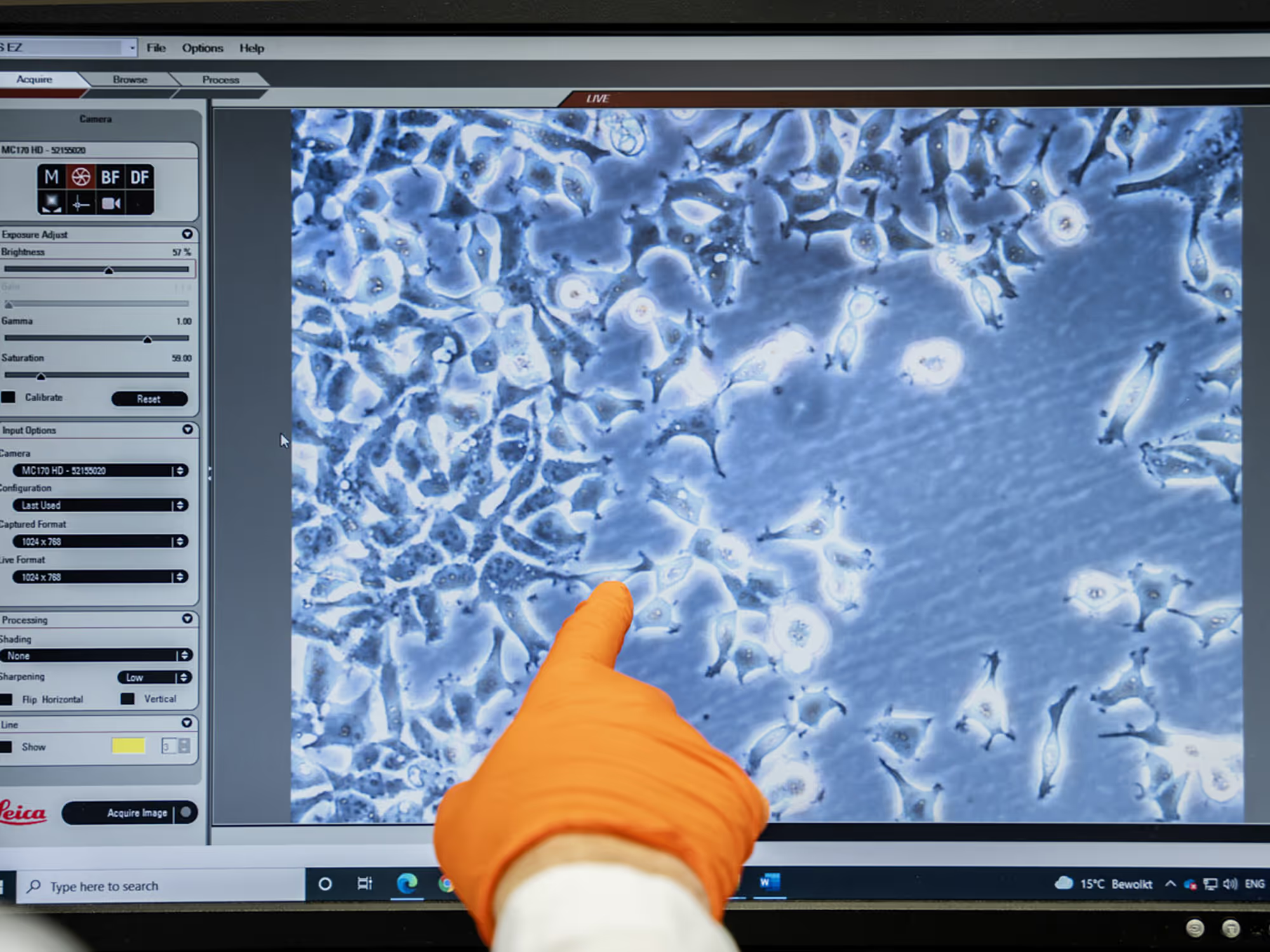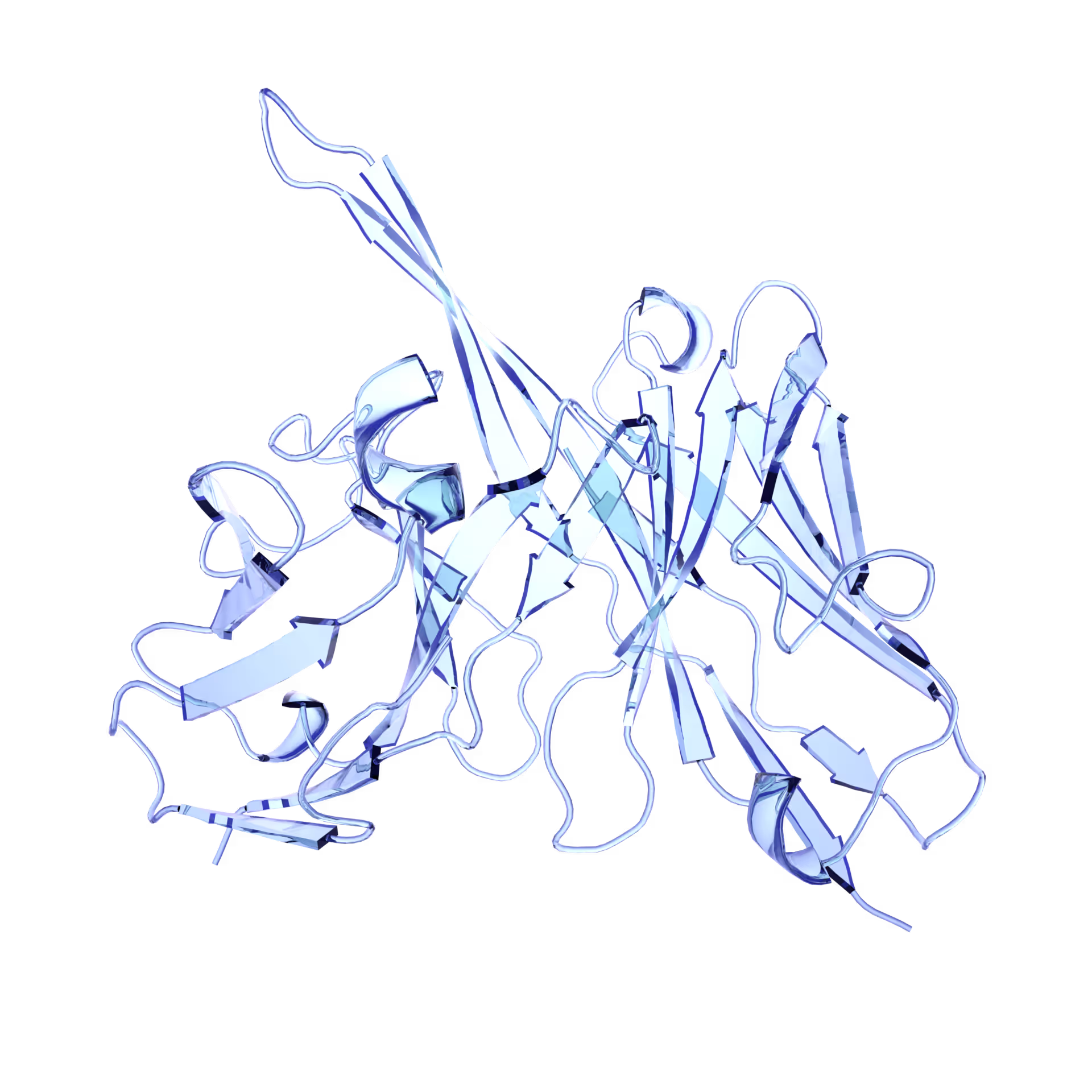Antibody
Characterization

Data-driven Candidate Selection
AVS Bio provides a comprehensive package of antibody characterization technologies. In addition to standard antibody reactivity analyses by ELISA or flow cytometry, antibody characterization can be extended to detailed kinetics analyses, epitope binning, and functional analyses such as ADCC, CDC, ADCP, internalization, and more.
Resource:
Protein-protein Interaction Analyses
ELISA | Flow Cytometry
AVS Bio offers a variety of target binding studies—the foundation of antibody research. Using ELISA, we assess interactions with recombinant proteins or other molecules. For detailed analyses of reactivity towards cell-expressed targets, our high-throughput flow cytometers screen large panels of antibodies on up to four cell populations per well. Depending on the required characteristics of your lead antibody, customized ELISA- and/or flow cytometry-based screenings can also be developed.
Resource:
SPR | BLI | HTRF | AlphaLISA
Understanding how antibodies interact with their targets is key to (therapeutic) success. With SPR and BLI, we measure binding kinetics and perform epitope binning. Functional binding and modulation of protein–protein interactions can be easily assessed in a high-throughput way using HTRF and AlphaLISA assays. These technologies support comprehensive antibody characterization at an early stage to streamline data-driven triaging during discovery campaigns.
Resources:
(Customized) Functional assays
Antibody binding alone is often not enough to ensure therapeutic efficacy. We design tailored functional assays to select for antibodies with desired characteristics—whether activating or inhibiting a target, modulating migration, or enhancing effector functions that ultimately drive cell killing.
ADCC | CDC | ADCP
In therapeutic applications, effector functions play a crucial role in tumor or pathogen clearance. Our laboratory offers robust (surrogate) assays to evaluate:
- ADCC – Antibody-dependent cellular cytotoxicity
- CDC – Complement-dependent cytotoxicity
- ADCP – Antibody-dependent cellular phagocytosis
Resource:
Immune cell activation and killing assays
Antibody-based therapies can target immune cells for elimination or activation, and immune cell engagers - including T-cell engagers - have emerged as an important new class of such therapies. AVS Bio studies the activation of primary immune cell populations by analyzing expression of activation markers or cytokine production. We can study immune cell engager potential in both reporter-based assays or primary immune cell-based killing assay, with real-time measurements. Both assays allow for significant throughput, enabling screening of larger panels of different candidates.
Resource:
Receptor activation
Dysregulated receptor activity—whether through overactivation, excessive ligand production, receptor silencing, or ligand deficiency—is a common driver of disease. Antibodies that can inhibit or activate receptors and ligands hold strong therapeutic potential. AVS Bio uses target-directed assays and downstream signaling analyses to identify antibodies that modulate this receptor activity. These (customized) assays may include ones that study effects on phosphorylation of downstream proteins, receptor recycling, and transcription or translation of genes and can be seamlessly integrated into antibody discovery programs. This ensures only the most promising candidates advance.
Internalization | ADC development
Antibody internalization upon target binding is a key characteristic of antibody-drug conjugates (ADCs). We provide assays to measure such antibody-induced internalization and conduct surrogate ADC assays to validate cell killing through this mechanism.
Migration
Cell migration is an important driver of invasive tumor cells, but it plays a critical role in normal physiology as well. As migration is regulated by interactions of cells with their environment, antibodies targeting certain membrane proteins can influence cell migration. AVS Bio studies migratory behavior of cells in real-time using label-free 96-wells-based methods, providing key insights into the function of your lead antibody.
